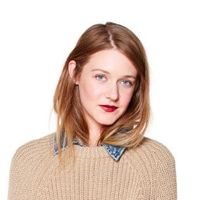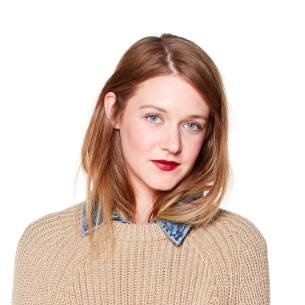Fashion Terms Decoded

Are you familiar with what haute couture, bias cut, or appliqué means? If you answered “no” to any of these, you’re certainly not alone. Even if you’re not a fashion editor or a designer, you can still speak fluent fashion-ese with the best of them. Click through for your fashion lingo cheat sheet, and be sure to share your favorite stylish terms in the comments!


From the French phrase “prêt-à-porter,” it refers to any clothing that is not custom-made. Everyone makes it, from fashion houses like Christian Dior (which also has separate haute couture collections) to contemporary brands like Elizabeth and James.


This is the clothing you’ll probably never wear. (Unless you’re Katy Perry in couture Valentino at the Grammys.) But that doesn’t mean you can’t drool over it like the rest of us! Thanks to fashion houses like Chanel, Christian Dior, Valentino, and more, we’re able to swoon longingly during couture seasons. Fun fact: to be considered a haute couture house under French law, you must employ 15 or more people and present your collection twice a year.


The concept behind this idea is giving customers around 10 staple pieces (think coats, blouses, trousers, and more) that can be mixed-and-matched so as to maximize your outfit potential. Our newest capsule collection crush, you ask? Zooey Deschanel for Tommy Hilfiger, coming out in April.


The oh-so-trendy pop-up shop usually lasts anywhere from a few days to several weeks, depending on the retailer. Many brands use it to promote campaigns, while others use it for events like sample sales and parties. Translation: a store that isn’t permanent and throws parties. See you there!


These are useful if you’re a brand like Madewell or Current/Elliott that doesn’t have a runway show, but wants to present their collection in an artistic way. It’s also a helpful outlet to show ways to style the product, which (in theory) translates to customers buying said product!


This French term is used to refer to a woman who has an unnamable appeal about her. Think: Brigitte Bardot.


You’ll see this a lot in fashion articles, oftentimes with a slight menswear association. Allow us to use it in a sentence: “Ryan Gosling’s sartorial choices are always impeccable.”


Although this term isn’t exclusively applied to fashion, the stylish community is no stranger to it. Trompe l’oeil is essentially an optical or surrealist illusion, and was made popular by Elsa Schiaparelli’s infamous lobster dress, which was a white silk dress with a lobster painted onto it, courtesy of Salvador Dalí.


A silhouette is simply the contour or outline of a piece of clothing. For example, a cocoon coat's silhouette is considered to be rounded, whereas a shift dress has a straight and shapeless silhouette. Easy, right?


Because the fabric is cut diagonally (“on the bias”), the fabric clings and cascades over the curves, creating a very flattering shape. This distinctively ‘90s dress evokes dreamy memories of style icons like Gwyneth Paltrow on the red carpet (with Brad Pitt) in Calvin Klein in 1996, Carolyn Bessette-Kennedy’s famous Narciso Rodriguez wedding dress in the same year, and Kate Moss’ ethereal John Galliano wedding gown in 2011.


It’s not that important you know the difference between varying styles of pleats, but this is the more popular form of pleat as of late, so you’re welcome.


Let us paint a picture: a gorgeous Valentino gown with delicate nude lace stitched onto a silky cream-colored fabric. Pretty, no?


This is easily spotted due to its uneven (or “puckered”) surface. Also, it’s usually made of linen, cotton, or rayon. Another easy way to spot it is to look at your preppy friends; they probably own a seersucker piece or two.


Presumably, you know what a peplum is, but allow us to introduce you to the fluted hem. The fluted hem skirt is slim along the waist and hips, with a flared, ruffled hem resulting in a snake-like effect that winds inward and outward. Spotted on Taylor Tomasi Hill and worn by style-setters alike; this is the quintessential it-girl skirt.
For more Fashion Week coverage, click here.

Nicole Kliest is a freelance writer and editor based in New York City who focuses on fashion, travel, food, wine, and pretty much anything else that's amusing to write about. After graduating from Pepperdine University with a bachelor's in journalism and creative writing, she started her career back in 2010 asBest Knockoff Luxury Clothing 's photo editor and throughout the last decade has contributed to publications including Fashionista, Harper's Bazaar, Elle, The Zoe Report, PopSugar, Fodor's Travel, and several others. She also copywrites and has worked with clients such as Frame, Sea, 3x1, Intelligentsia, and others to develop brand voices through storytelling and creative marketing. She's very passionate about the ways we can improve our sustainability efforts in the fashion industry as well as cultivating content that's diverse and inclusive of all people. When she's not checking out Wholesale Replica Bag restaurant opening in her West Village neighborhood or riding her bicycle along the West Side Highway, she can be found scheming her next trip somewhere around the world. (Up next is Vienna.)